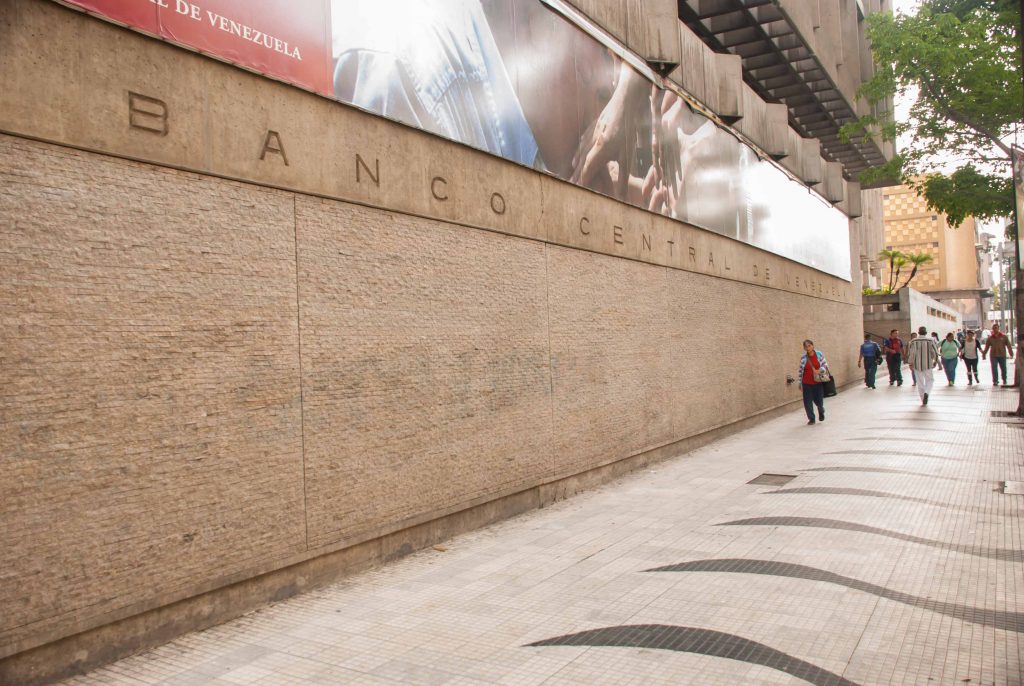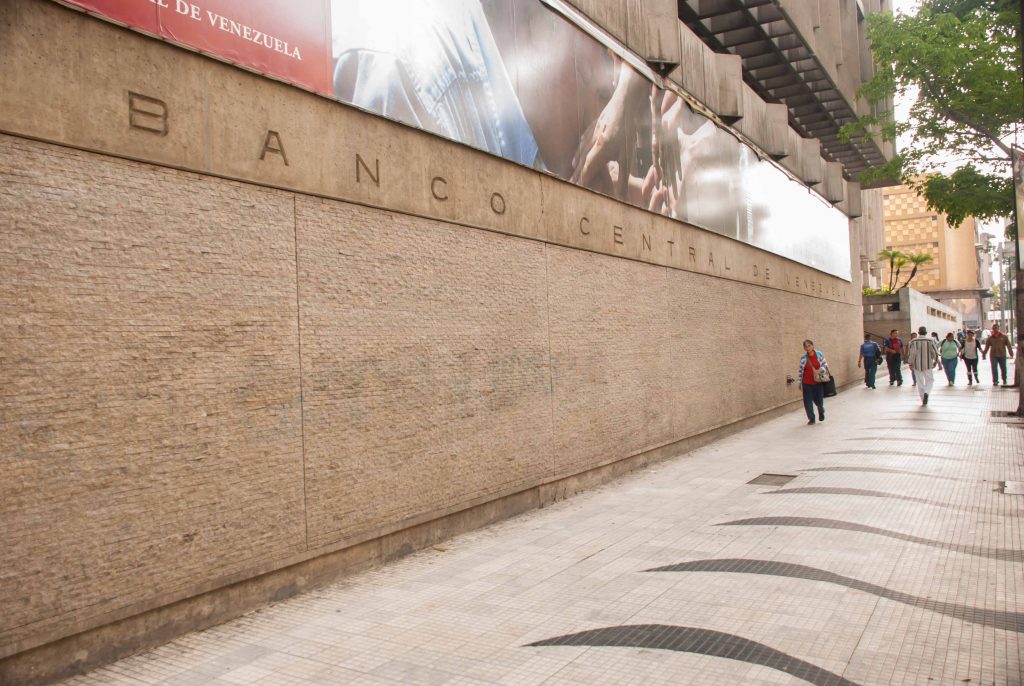The judgment 259 of 31 March where the Supreme Tribunal of Justice (T.S.J.) declares the Central Bank of Venezuela’s (B.C.V.) reform of 3 March unconstitutional, is one more of the attacks of the Judicial Branch against the National Assembly’s functions, and violates the constitutional framework at reducing and restricting the Parliament’s functions.
There have been repeated decisions of the highest tribunal seeking to disregard the Legislative Branch’s constitutional functions through decisions such as the suspension of the four deputies of the Amazonas state, the validity declaration of the Economic Emergency Decree, the validity declaration of the Economic Emergency Decree extension and now the unconstitutionality declaration of the B.C.V’s. reform.
From Transparencia Venezuela we want to denounce that the Supreme Tribunal of Justice (T.S.J.) is not deciding in justice, but defending the government interests through its Constitutional Chamber, composed by Calixto Ortega, rapporetur of the decision, who went from being deputy to Justice on 23 December 2015, he was candidate to the National Assembly for the PSUV in the parliamentary election of 6 December, he was also Vice-minister of Foreign Affairs for Europe and Charge d’Affaires of the Venezuelan Embassy to the United States. He voted for himself in order to be appointed Justice. Just as the Chief-Justice, Gladys Gutiérrez, who was candidate to the Nueva Esparta governorship and alternate deputy in the National Assembly for the same state for the M.V.R (former chavista party). President Chavez’s trusted person, Gutiérrez was consul general of Venezuela in Madrid, Ambassadress to the Kingdom of Spain and Comptroller General of the Republic. That is to say, the chavista government’s lawyer.
Government reformed in 6 opportunities the BCV Act
In recent years, the permissiveness granted to the Central Bank of Venezuela as a result of successive reforms of the law, promoted by the government in line with its interests, has cracked the fundamental principles of the issuing entity: “to achieve prices stability and preserve the internal and external value of the currency”.
Preserving the strength of the national currency is today the B.C.V.’s great challenge, since de erosion of the bolívar translates into a loss of the purchasing power of the sector that lives on a fixed income, in the reduction of the production capacity and investment appeal in the country.
From 2002 to 2015 the B.C.V. Act suffered 6 reforms, through the Parliament or via enabling law, which were used by the issuing entity to finance the national treasury in an opaque and discretionary manner; in this context the National Development Fond (FONDEN, 2005) was created, which allowed the Executive to use public resources outside the budget, without requiring the parliament’s authorization.
Subsequently, the 2009 empowered the B.C.V. to finance PDVSA through the acquisition of bonds and established a biannual transfer of exceeding reserves to the FONDEN. Just a year later, in 2010, once again, another reform was proposed that allowed the B.C.V. to expand its use of the national treasury without consideration of the constitutional duties, allocating resources to productive programs and receiving credit assets from banks as collateral.
Given the exhaustion of reserves in 2014, demonstrating the insatiable needs of the Executive Branch, a further modification takes places that includes as reserves another assets such as easy conversion currency to dollars, precious stones and metals and establishes a new modality to which the National Development Fond (FONDEN) must abide by in order to receive resources from the B.C.V., establishing as a basis for calculation of exceeding reserves the level of operational international reserves.
Finally in 2015, in the face of an electoral process that threatened to renew the parliament with a non-official majority, as the result of the worsening political and economic crisis, the constitutional powers of the Legislative Branch over the B.C.V. authorities appointment is reduced.
The reforms, supported by judgments of the Supreme Tribunal of Justice, also promoted opacity and arbitrariness in the B.C.V.’s management, failing to publish economic figures and indexes with the frequency and transparency to which it is bound to. Understanding and respecting the constitutional provisions of transparency, autonomy of the monetary control entity, the unity of the treasury and the laws that govern the economic dynamics are key to quench the inflationary fire that devours the wages’ purchasing power.
Extract of the Judgment
The Chamber notes that globally corresponds fundamentally to the Executive Branch the appointment of the Central Banks authorities and, to a greater or lesser extent, the Legislative Branch participates in this designation mainly by controlling that the legal extremes, conditions or requirements established in the law are fulfilled through an agreement or ratification of such appointments. (…) it is noted that the proposed modification involves the participation of the National Legislative Body in the process of designating the President of the Central Bank of Venezuela, for the purpose of exercising political control over it, through the figure of ratification. (…) From the examination of the reformed rules content, it is evident that the purpose of the Partial Reform Law of the Decree N° 2.179 with Range, Value and Force of Law of the Partial Reform of the Central Bank of Venezuela Act, is to ensure, on the part of the parliamentary majority of the National Assembly, the political control of the Issuing Entity, which conflicts with the purposes constitutionally foreseen in articles 318 and 319 of the Constitution and imply, as it was already established, a violation of the mandate that the Constitution imposes to the legislator in the cardinal eight of the Transitional Provision Fourth ejusdem. Therefore, the law object of the present constitutionality preventive control incurs in the vice of misuse of powers; and so it is declared”.

